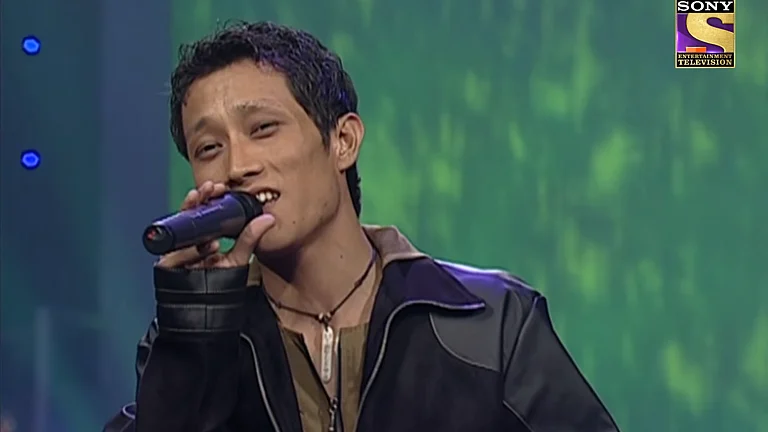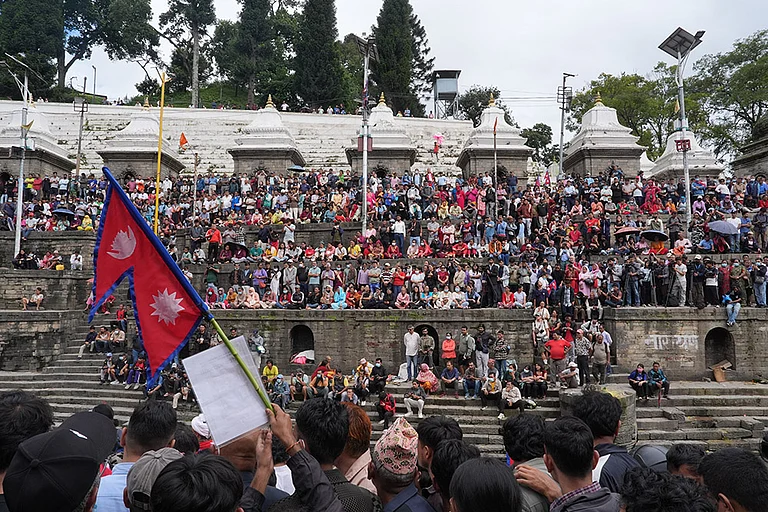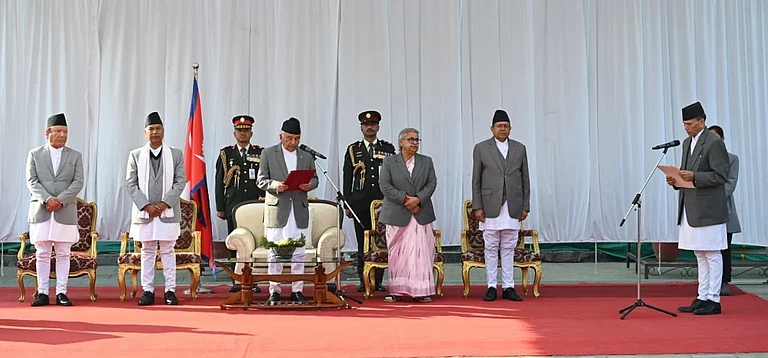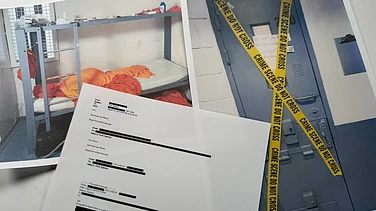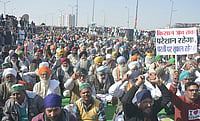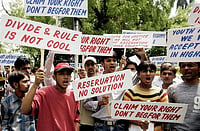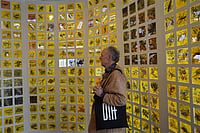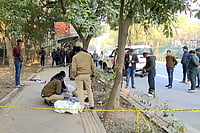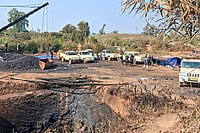Nepali Maoist leader Pushpa Kamal Dahal "Prachanda" is set to become the new Prime Minister of Nepal on Monday.
Prachanda, 68, is scheduled to take oath on Monday afternoon. This will be his third prime ministerial tenure.
Prachanda dramatically emerged as the prime ministerial choice on Monday. An election ally of outgoing PM Sher Bahadur Deuba, he jumped ship to join the rival Khadga Prasad Sharma Oli-led bloc.
President Bidya Devi Bhandari appointed Prachanda as the Prime Minister Nepal on Monday as per Article 76 (2) of the Constitution after receiving his claim to the seat, backed by 169 of the total 275 members of the House of Representatives.
Oli-Prachanda outsmarted Sher Bahadur Deuba
In last month's elections, Deuba's Nepali Congress had emerged as the single-largest party. However, it fell short of the majority mark and therefore had to forge a coalition.
The NC-led alliance comprised Prachanda's CPN-Maoist Centre (CPN-MC), CPN-Unified Socialist, and Loktantrik Samajwadi Party. It faced Oli's CPN-Unified Marxist Leninist (CPN-UML)-led coalition comprising Rastriya Prajatantra Party and Janata Samajwadi Party.
However, as Deuba-led NC bloc sought to hammer a ruling coalition, Prachanda on Monday withdrew support on Monday to join Oli-led bloc. Some other parties also joined the bloc and Oli emerged as the prime ministerial face with parliamentary majority.
Notably, until last year, Prachanda and Oli were co-chairs of unified CPM. The fallout between the two led to the division of the party into two and the eventual ouster of Oli as Prime Minister of Nepal. Now the friends-turned-foes are friends again and Oli has become kingmaker to prop Prachanda as the Prime Minister.
However, Prachanda would need to win the confidence of the House after being sworn in.
Who is new Nepal PM Prachanda?
Pushpa Kamal Dahal "Prachanda" is the former leader of the Maoist rebels who waged a civil war against the monarchy in Nepal.
Prachanda was born on December 11, 1954 in Dhikurpokhari of Kaski district near Pokhara, Nepal.
Prachanda led the war during 1996-2006 and entered mainstream politics after signing the Comprehensive Peace Agreement in November 2006. He and his movement sought the abolition of Nepali monarchy.
Following entry into mainstream politics, Prachanda served two prime ministerial tenures, first in 2008-09 and second in 2016-17.
Prachanda is a name he acquired when he joined the Communist movement which he eventually turned into a bloody insurgency. It means 'fiernce' in Nepali and Indian languages.
Throughout the Maoist insurgency, Prachanda remained underground and remained in India in hiding for most of the time.
"During 10 years of insurgency, Prachanda remained underground, spending eight of those years in India. Though the campaign led by Prachanda did not enjoy consistent good fortune, it was ultimately successful in its goal of ending Nepal’s 237-year-old monarchy," says Britannica Encyclopaedia.
Prachanda is currently seen to be pro-China, reports PTI.
How Prachanda became PM in dramatic Sunday?
Until Sunday afternoon, Deuba was set to be the Prime Minister of Nepal. However, things changed dramatically.
Earlier on Sunday, Prachanda walked out of the Nepali Congress (NC)-led five-party alliance after NC leader Deuba rejected his bid to become the Prime Minister in the first round. Deuba and Prachanda had earlier reached a tacit understanding to lead the new government on a rotational basis.
During talks with Prachanda on Sunday morning at the PM House, Nepali Congress had staked a claim for both the key posts of President and Prime Minister, which Prachanda had rejected, resulting in the failure of the talks, reported PTI, citing Maoist sources.
After talks with Deuba failed, Prachanda reached the private residence of CPN-UML chairman Oli to seek his support to become the Prime Minister. Leaders of other smaller parties joined him.
A crucial meeting was held at Oli's residence where the CPN-MC and other smaller parties agreed to form a government under the leadership of Prachanda. There has been an understanding between Prachanda and Oli to lead the government on a rotation basis and Oli agreed to make Prachanda the PM at the first chance as per his demand.
Not only did Oli succeed in getting Prachanda anointed as the prime minister, a move which weaned Prachanda away from the NC-led alliance, but he also now gets to have his own candidate for the head of the state and the Speaker of the House of Representatives along with plum ministries and a majority of the provincial chief ministers.
“Until the last hour, the UML was not getting anything but now it will have the President and Speaker from the party, apart from the chief ministers of at least four provinces. It is a political triumph for Oli,” Jhalak Subedi, an analyst of left politics, told the Kathmandu Post.
“Even though Oli is not taking the helm of government, he will have the pole position in steering the government, checking the Dahal-led administration through the President and Speaker,” the analyst added.
Nepal's unlikely alliances
The current Prachanda-Oli alliance as well as the earlier pre-election alliances were very unlikely as the allies were ideological opponents.
The current Prachanda-Oli alliance includes CPN-UML, CPN-MC, Rastriya Swatantra Party, Rastriya Prajatantra Party, Janamat Party, Janata Samajbadi Party and the Nagarik Unmukti Party. While the UML and MC are Lefist parties, the Prajatantra party is a right-wing monarchist parties.
The earlier pre-poll alliances were also ideologically mismatched.
The NC-led alliance included CPN-MC, CPN-Unified Socialist, and Madhes-based Loktantrik Samajwadi Party and the CPN-UML-led alliance included pro-Hindu Rastriya Prajatantra Party and Madhes-based Janata Samajwadi Party.
The NC and the CPN-MC of Prachanda were bitter rivals during the Nepali civil war as Prachanda was the leader of Communists. The Indian Express reported that a large number of 17,000 people killed during the civil war were NC cadres and current NC PM Deuba also survived a Communist ambush earlier. But he entered into an alliance with the group that once tried to kill him.
On the other hand, the Left parties were allied with monarchist parties which also went against conventional wisdom.
The Prachanda-Oli rise and its meaning for India
The surprise development of Prachanda becoming the Nepal's Prime Minister may not bode well for India-Nepal ties as he and Oli have had some run-ins with New Delhi previously over territorial issues.
Prachanda is seen as pro-China. He has in the past said a new understanding with India needed to be developed on the basis of a "changed scenario" in Nepal and after addressing all outstanding issues, like revision of the 1950 Friendship Treaty and resolving Kalapani and Susta border disputes.
The India-Nepal Treaty of Peace and Friendship of 1950 forms the bedrock of the special relations between India and Nepal.
In recent years, Prachanda, however, has said India and Nepal need to address diplomatically some of the issues “left by history” to realise the full potential of the bilateral cooperation.
Prachanda's main backer Oli is also known for his pro-China stance. As the prime minister, Oli last year claimed that efforts were being made to oust him after his government redrew Nepal’s political map by incorporating three strategically key Indian territories, a move that strained ties between the two countries.
India had termed as "untenable" the "artificial enlargement" of the territorial claims by Nepal after its Parliament unanimously in 2020 approved the new political map of the country featuring Lipulekh, Kalapani and Limpiyadhura areas which India maintains belong to it.
The country shares a border of over 1,850-km with five Indian states - Sikkim, West Bengal, Bihar, Uttar Pradesh and Uttarakhand.
Land-locked Nepal relies heavily on India for the transportation of goods and services. Nepal’s access to the sea is through India, and it imports a predominant proportion of its requirements from and through India.
Prime Minister Narendra Modi wished Prachanda on Twitter after he emerged as the Prime Minister of Nepal.
"Warmest congratulations, Pushpa Kamal Dahal "Prachanda", on being elected as the Prime Minister of Nepal. The unique relationship between India and Nepal is based on deep cultural connect and warm people-to-people ties. I look forward to working together with you to further strengthen this friendship," said Modi on Twitter.
(With PTI inputs)







